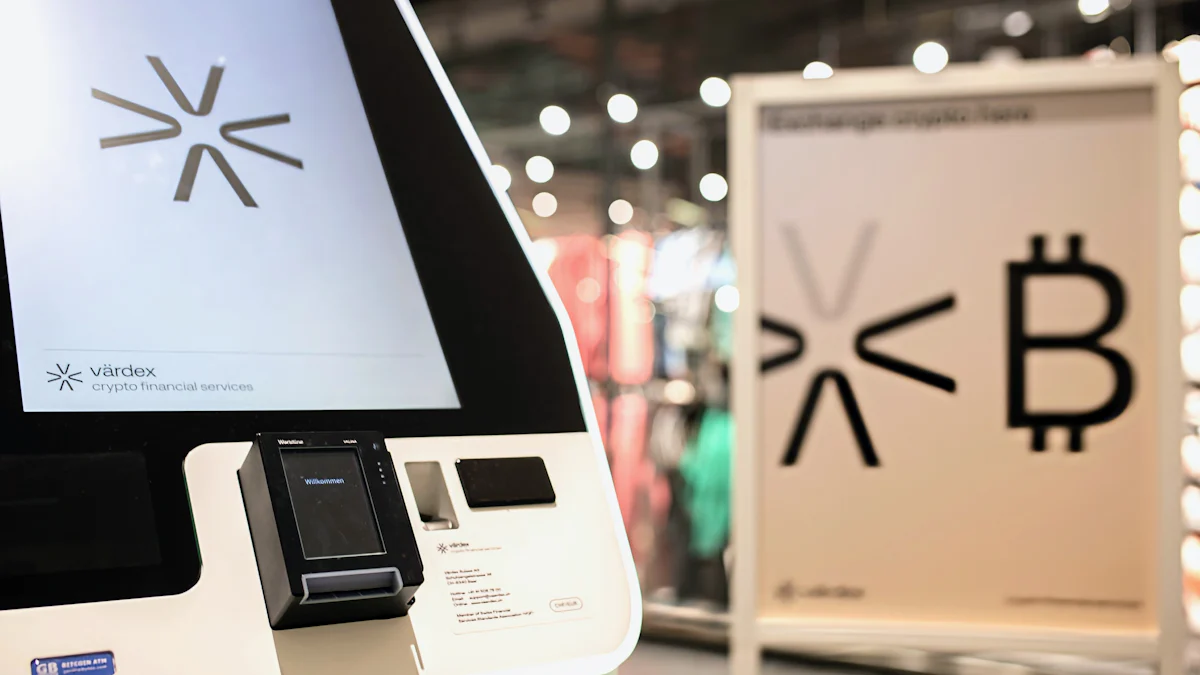What Is Customer Self-Service Software and Its Benefits

Customer self-service software enables you to independently find solutions and address issues, removing the need to rely on support agents and putting you in charge of your experience. Research shows that 67% of customers prefer resolving problems on their own rather than interacting with a representative. This rising preference underscores the significance of customer self-service software in today’s fast-moving digital landscape.
Sobot, a pioneer in this domain, provides cutting-edge tools such as AI-driven chatbots and comprehensive knowledge bases. These solutions optimize operations and boost customer satisfaction by offering 24/7 support. With Sobot, businesses can create seamless and personalized experiences that foster trust and long-term loyalty.
Key Takeaways
- Customer self-service software empowers you to resolve issues independently, enhancing your experience and satisfaction.
- AI-driven chatbots and knowledge bases provide 24/7 support, ensuring you have access to solutions whenever you need them.
- Businesses can significantly reduce operational costs by implementing self-service tools, leading to fewer support tickets and streamlined operations.
- Regularly updating content in self-service systems is crucial for maintaining accuracy and customer trust.
- A user-friendly interface encourages the use of self-service tools, making it easier for you to find the information you need quickly.
- Gathering and acting on customer feedback helps refine self-service tools, ensuring they remain relevant and effective.
- Choosing the right self-service tools, like those offered by Sobot, can create a cohesive experience that meets diverse customer needs.
What Is Customer Self-Service Software?
Definition and Core Features
Customer self-service software is a digital tool that empowers you to find answers and resolve issues without needing direct assistance from support agents. This software includes several essential features designed to enhance your experience and streamline the support process.
Tools like Knowledge Bases, Chatbots, and FAQs
Knowledge bases serve as centralized hubs where you can access detailed articles, guides, and troubleshooting steps. These resources are often paired with FAQs, which provide quick answers to common questions. AI-powered chatbots take this a step further by offering instant responses and guiding you to the right solutions. For example, Sobot’s chatbots integrate seamlessly with knowledge bases, ensuring you receive accurate and relevant information in real time. These tools not only save you time but also reduce the workload on support teams.
Integration with Customer Support Systems
Modern customer self-service software integrates with existing customer support systems to create a cohesive experience. When you interact with a chatbot or search a knowledge base, the software pulls data from various sources to provide precise answers. This integration ensures that your inquiries are handled efficiently, whether through automated tools or by escalating complex issues to human agents. Sobot’s solutions excel in this area, offering smooth integration that enhances both self-service and traditional support channels.
Why It Matters in Today’s Business Landscape
The Shift Toward Digital-First Customer Experiences
The way businesses interact with customers has changed dramatically. You now expect fast, digital-first solutions that fit into your busy lifestyle. Customer self-service software meets this demand by providing instant access to information and support. Tools like chatbots and automated FAQs allow you to resolve issues on your own, reflecting the growing preference for self-reliance in the digital age. According to recent studies, over 60% of customers prefer self-service options over traditional support methods.
Increasing Demand for 24/7 Support Options
In today’s global economy, businesses operate around the clock, and so do customer needs. You may require assistance at any time, whether it’s during the day or late at night. Customer self-service software ensures that help is always available. With features like AI-driven chatbots and well-organized knowledge bases, you can find solutions whenever you need them. Sobot’s tools, for instance, provide 24/7 support, enabling businesses to meet your expectations while reducing response times and operational costs.
Benefits of Customer Self-Service Software

Benefits for Customers
Faster access to information and solutions
Customer self-service software empowers you to find answers quickly. Instead of waiting for a support agent, you can access solutions instantly through tools like knowledge bases or chatbots. For example, self-service channels resolve an estimated 54% of customer issues, allowing you to address your concerns without delays. This speed not only saves time but also enhances your overall experience. Sobot’s AI-driven chatbots ensure you receive accurate and immediate responses, making problem-solving seamless and efficient.
Convenience and 24/7 availability
You no longer need to worry about business hours when seeking help. Customer self-service software provides round-the-clock support, ensuring assistance is always available. Whether it’s late at night or during a busy day, you can access resources like FAQs or troubleshooting guides whenever needed. Sobot’s tools, designed for 24/7 availability, cater to your schedule and preferences, offering unmatched convenience. This constant accessibility ensures you remain in control of your experience.
Benefits for Businesses
Reduced operational costs
Customer self-service software significantly lowers costs for businesses by reducing the workload on support teams. Companies adopting these tools have seen up to a 28% reduction in support tickets, which minimizes the need for additional staff. For instance, Verizon saved millions annually by enhancing its self-service options, leading to fewer calls and streamlined operations. Sobot’s solutions help businesses achieve similar cost savings by automating repetitive tasks and optimizing resources.
Improved customer satisfaction and loyalty
When you can resolve issues independently and efficiently, your satisfaction increases. Businesses using customer self-service software report higher customer satisfaction scores, with some seeing improvements of up to 30%. Sobot’s tools enhance your experience by providing personalized and reliable support, fostering trust and loyalty. Happy customers are more likely to return, making self-service a key driver of long-term relationships.
Scalability for handling high volumes of inquiries
As businesses grow, managing a surge in customer inquiries becomes challenging. Customer self-service software scales effortlessly to handle large volumes without compromising quality. Automated tools like chatbots can manage multiple interactions simultaneously, ensuring no customer feels neglected. Sobot’s scalable solutions enable businesses to meet growing demands while maintaining efficiency and consistency, ensuring you always receive the support you need.
Challenges and Solutions in Implementing Customer Self-Service Software
Common Challenges
Ensuring accurate and up-to-date information
Keeping information accurate and current is one of the biggest hurdles when using customer self-service software. Customers rely on these tools to find solutions, but outdated or incorrect content can lead to frustration. For example, a knowledge base with obsolete troubleshooting steps may confuse users instead of helping them. According to surveys, 81% of consumers want more advanced self-service options, yet many businesses fail to meet this expectation due to poor content management. Regular updates are essential to ensure customers always access reliable and relevant information.
Balancing automation with human support
Automation improves efficiency, but over-reliance on it can alienate customers. Some issues require human empathy and understanding, which automated tools like chatbots cannot provide. A study revealed that while 53% of businesses believe their customers are satisfied with self-service options, only 15% of consumers agree. This gap highlights the importance of striking the right balance between automated tools and human support. Customers should feel empowered by self-service options without losing access to personalized assistance when needed.
Solutions to Overcome Challenges
Regularly updating content and resources
To maintain the effectiveness of customer self-service software, you must prioritize regular updates. Businesses should audit their knowledge bases, FAQs, and other resources frequently to ensure accuracy. For instance, Sobot’s tools allow companies to easily update content, ensuring customers always receive the most relevant information. By integrating analytics, businesses can identify outdated articles or underperforming resources and replace them with improved versions. This proactive approach enhances customer trust and satisfaction.
Using analytics to refine self-service tools
Analytics play a crucial role in improving self-service tools. By analyzing customer interactions, businesses can identify common pain points and areas for improvement. For example, if a chatbot frequently escalates specific queries to human agents, it may indicate gaps in its programming. Sobot’s AI-driven solutions use advanced analytics to refine chatbot responses and optimize knowledge base content. This data-driven approach ensures your self-service tools evolve to meet customer needs effectively.
Best Practices for Implementing Customer Self-Service Software
Steps to Successful Implementation
Identify customer pain points and needs
Understanding your customers' challenges is the first step in implementing effective self-service software. Begin by analyzing common inquiries and complaints. Look for patterns in customer feedback, support tickets, or chatbot interactions. For example, if customers frequently ask about product troubleshooting, a detailed knowledge base could address this need. According to the IMARC Group, self-service tools excel when they adapt to diverse customer preferences, offering tailored solutions. Identifying these pain points ensures that your self-service system directly addresses customer expectations, enhancing their overall experience.
Choose the right self-service tools (e.g., Sobot’s solutions)
Selecting the right tools is crucial for success. Opt for software that integrates seamlessly with your existing systems, such as CRM platforms or analytics tools. Sobot’s solutions, for instance, offer AI-driven chatbots and intuitive knowledge bases that provide consistent and accurate information across all channels. This consistency builds trust and ensures customers receive reliable guidance. Additionally, tools like Sobot’s are scalable, making them ideal for businesses of all sizes. By choosing the right tools, you create a cohesive and efficient self-service ecosystem that meets customer demands.
Tips for Optimizing Self-Service Software
Make the interface user-friendly
A user-friendly interface is essential for encouraging customers to use self-service tools. Simplify navigation by organizing content into clear categories and using intuitive search functions. For example, Sobot’s knowledge bases feature well-structured layouts that help customers find answers quickly. The IMARC Group highlights that streamlined interfaces enhance customer satisfaction by reducing frustration. Ensure your design is mobile-friendly, as many customers access self-service tools on their smartphones. A clean and accessible interface empowers customers to resolve issues independently, improving their overall experience.
Continuously gather and act on customer feedback
Customer feedback is a valuable resource for refining your self-service software. Regularly collect input through surveys, chatbot interactions, or analytics. For instance, if customers struggle to find specific information, update your knowledge base to address these gaps. Sobot’s tools leverage advanced analytics to identify trends and optimize content. According to the IMARC Group, integrating analytics into self-service systems enhances their effectiveness by tailoring solutions to customer needs. Acting on feedback ensures your tools remain relevant and effective, fostering long-term customer loyalty.
Examples of Successful Customer Self-Service Tools and Strategies

Popular Tools in the Market
Knowledge bases and help centers
Knowledge bases and help centers have become essential tools for customer self-service. These platforms provide you with detailed articles, guides, and FAQs that address common questions and issues. For instance, a well-organized knowledge base allows you to quickly locate troubleshooting steps or product information without needing to contact support. Businesses that invest in these tools often see a significant reduction in repetitive inquiries. Sobot’s knowledge bases stand out by offering intuitive search functions and easy navigation, ensuring you find accurate answers effortlessly. This approach not only saves your time but also enhances your overall experience.
AI-powered chatbots like those offered by Sobot
AI-powered chatbots represent a game-changing innovation in customer self-service. These tools use advanced algorithms to provide instant responses and guide you through step-by-step solutions. For example, Sobot’s AI-driven chatbots can handle multiple inquiries simultaneously, offering personalized assistance based on your specific needs. These chatbots integrate seamlessly with other self-service tools, such as knowledge bases, to deliver a cohesive experience. By automating workflows, they make self-service channels more intuitive and efficient. Many businesses using AI-powered chatbots report improved customer satisfaction and reduced operational costs, highlighting their value in modern customer service strategies.
Real-World Success Stories
Businesses that reduced support costs with self-service
Many companies have successfully reduced their support costs by adopting customer self-service software. For example, a telecommunications giant implemented a robust self-service platform and saved millions annually by decreasing the volume of support calls. Automated tools like chatbots and knowledge bases allowed customers to resolve issues independently, reducing the need for human intervention. Sobot’s solutions have helped businesses achieve similar results by streamlining operations and automating repetitive tasks. These cost savings enable companies to allocate resources more effectively, improving both efficiency and profitability.
Companies that improved customer satisfaction through automation
Automation has played a pivotal role in enhancing customer satisfaction. A global e-commerce leader introduced AI-powered chatbots to handle common inquiries, resulting in faster response times and higher customer approval ratings. The automated workflows guided customers through step-by-step directions, making problem-solving straightforward and stress-free. Sobot’s AI-driven tools have delivered comparable outcomes for businesses across industries. By providing 24/7 support and personalized assistance, these solutions ensure you receive timely and accurate help. Companies leveraging automation not only meet your expectations but also foster loyalty and trust, driving long-term success.
Customer self-service software transforms how you interact with businesses by offering faster solutions and greater convenience. It enhances your experience while helping companies reduce costs and improve efficiency. Tools like AI-powered chatbots and knowledge bases empower you to resolve issues independently, ensuring satisfaction and loyalty.
Sobot stands out as a leader in this field. Its innovative solutions, such as real-time analytics and seamless CRM integration, deliver exceptional self-service experiences. Sobot’s tools simplify operations and provide 24/7 support tailored to your needs.
Explore Sobot’s offerings to elevate your customer service strategy. By adopting these cutting-edge tools, you can create a seamless, efficient, and customer-focused experience that drives long-term success.
See Also
Enhancing Efficiency With AI-Driven Customer Service Tools
2024's Leading Customer Service Software Solutions Revealed
Essential Guidelines for Selecting Social Media Support Tools
